Introduction from the Programme Director
All women should have access to a positive pregnancy experience because investing in motherhood means investing in the future. We firmly believe that we have failed to reach this goal because despite important progress, we are still working in silos, making it extremely challenging to identify and accelerate best practices at the global level.
In 2020 our aim was to create further proof that the only way to make lasting change in maternal health is for diverse stakeholders - women, healthcare professionals, industry, academics, public health organizations, governments and beyond - to truly collaborate on developing sustainable solutions around a shared goal.
All society was impacted by this year’s unprecedented health crisis, with additional challenges faced by women, newborns, and healthcare professionals. In the face of this new reality, and in support of the WHO year of the nurse and midwife, we chose the theme Working together with midwives & nurses for a positive pregnancy experience in a post COVID-19 era to celebrate Safe Motherhood Week. Our goals were threefold: 1) to understand women’s and healthcare professionals’ (HCPs) experiences and expectations with regards to care during pregnancy - including prenatal care, family planning and preconception care - in this new era post COVID-19, with a special focus on telemedicine, telecare, and self-care; 2) to increase awareness of the need for better information on the safety of medicine use during pregnancy and breastfeeding, in support of our participation in IMI ConcePTION; and 3) to accelerate the reach and impact of the UN Year of the Nurse and the Midwife campaign by raising awareness of the importance of midwifery and nursing for better maternal health and societal outcomes.
Our activities this year were anchored by a survey to understand women’s and HCP needs and preferences in reproductive care in the face of this new reality, to be able to prioritise gaps and opportunities in maternal care that COVID-19 brings to be able to make recommendations to the maternal health community. This survey has generated +500 responses to date from all over the world, and the many emotional stories that women shared about their care experiences during COVID show clear evidence for the need for maternal and neonatal care to be taken more seriously as a global priority.
In 2020 we have also continued our contribution to IMI ConcePTION, an EU-wide initiative generating much-needed information for women and HCPs on medicines use during pregnancy and breastfeeding. Highlights included the completion of two multinational, cross-sectional, web-based surveys to explore pregnant and breastfeeding women’s and healthcare professionals’ information needs, trust in information and preferences for a knowledge bank about medicine use during pregnancy and breastfeeding, with 2575 total responses (T5.1 and T5.2).
Maternal Health Synapse received a new look and feel with an improved user experience and grew with over 100 new organisations, over 20 new initiatives and approx. 400 maternal health events in comparison to 2019.
In 2021 we will continue our objective to show the value of collaborating across diverse stakeholders and geographic borders to sustainably solve maternal and neonatal health issues. We are developing pilots to build sub-communities around reproductive care topics and/or geographic areas, such as urban maternal health, in collaboration with Mothers At Risk, which will include a dedicated space on Maternal Health Synapse.
We aim to publish and disseminate the results of the Safe Motherhood Week survey on remote reproductive care during COVID and will continue to support the objectives of IMI ConcepTION through Safe Motherhood Week and beyond. Finally, we are exploring opportunities to bring a maternal and neonatal health lens to other programs in The Synergist, such as the COVID-360 and Patient Experience Data projects in PFMD.
2020 Achievements
Safe Motherhood Week 2020
Safe Motherhood Week (SMW) 2020 with the theme “Working together with midwives & nurses for a positive pregnancy experience in a post COVID-19 era”.
2020 GOALS
- Find out What do women and HCPs think and want with regards to care during pregnancy - including prenatal care, family planning and preconception care - in this new era post COVID-19?
- Increase awareness of the need for better information on the safety of medicine use during pregnancy and breastfeeding
- Support the UN Year of the Nurse and the Midwife by raising awareness of the importance of midwifery and nursing for better maternal health and societal outcomes
Safe Motherhood Week Survey in collaboration with IMI ConcePTION Theme “Identify women’s and HCP expectations and needs in maternal care post COVID-19”
2,311,488
Reach
(36% growth compared to 2019)
60,000
Engagements
(Social media, survey, webpage)
8
Number of languages
survey is translated to
255
New
followers
500
Survey
responses
Results
- Responses from women and HCPs from across the world
- English survey translated in IT, FR, NL, DE, ES, SWE, RO, AR
- Women (preconception, pregnant, breastfeeding, recent mothers) approx. 410 respondents
- HCPs (GPs, OB/GYNs, midwives, nurses, pharmacists, paediatricians, other medical specialists) approx. 90 respondents
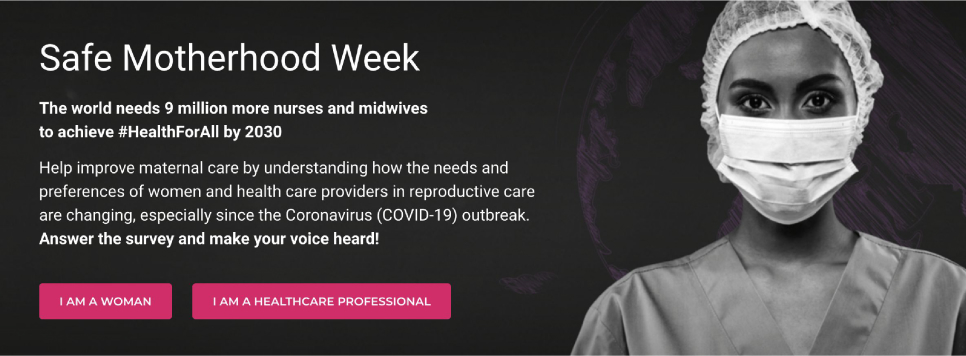
37%
increase in use of remote care services in comparison to before the outbreak
40%
of women who used virtual support groups, used them as a replacement to asking their HCP
nearly 70%
of HCPs provided significantly more remote care service since the outbreak
The survey was shaped under the guidance of a survey advisory board:
- Alberta Bacci, consultant in perinatal health and Former Coordinator Making Pregnancy Safer Program, WHO Regional Office for Europe,
- Petra ten Hoope-Bender, a Technical Advisor on Sexual and Reproductive Health at the United Nations Population Fund (UNFPA) Geneva Office and Former Secretary General of the International Confederation of Midwives (ICM),
- Sarah Bar-Zeev a Midwifery Technical Specialist in the Sexual and Reproductive Health Branch at the UNFPA New York Headquarters,
- Michael Ceulemans, Community Pharmacist, Postdoctoral researcher (Clinical Pharmacology and Pharmacotherapy, KU Leuven) and Teratogen Information Specialist at Lareb (the Netherlands)
- Linda Harmark, Head Innovation at Netherlands Pharmacovigilance Centre Lareb
Contribution to ConcePTION
The Synergist led two multinational, cross-sectional, web-based surveys which were conducted in early 2020. One survey was open to women, including mothers to be, pregnant, breastfeeding women and mothers, and the second survey was aimed at HCPs.
The members of IMI ConcePTION supported the creation and dissemination of the surveys, with The Synergist leading the overall coordination of the surveys. The coordination included the co-creation of the questionnaires, compliance with GDPR, translations, input into survey tool, monitoring of responses and coding of response data in preparation for statistical analysis (done by partners).
The objective of the survey was to explore pregnant and breastfeeding women’s and healthcare professionals’ (HCPs) information needs, trust in information and preferences for a knowledge bank about medicine use during pregnancy and breastfeeding (T5.1).
The surveys outlined above included a questionnaire part that covered questions that are to feed into the design, content and user interface of the knowledge bank (T5.2) which The Synergist is also participating in designing and building. The Synergist team also led the effort to help determine the name, logo, tagline and colour scheme for the knowledge bank. This was achieved through social media polls, through targeted questions in the survey launched as part of MCIP and internal voting within the ConcePTION consortium.
The Synergist also contributed to raising awareness of the information gap in medicines use during pregnancy and breastfeeding. As part of our contribution to T 5.3, which aims to develop and execute general communication methods for increasing awareness about the importance of reporting through PV systems and participation in research during pregnancy and breastfeeding, we engaged the general public through the Safe Motherhood Week campaign and supported the consortium with communication-specific expertise (developing messaging strategies, communication plans and tactics etc).
Finally, we are continuing to support efforts to define a sustainability strategy for IMI ConcePTION. In the first quarter of 2020, a political campaign was developed to bring visibility to the issue of medicines use in pregnancy and breastfeeding, as well as the ConcePTION project as a whole. This will continue to be shaped in 2021.
The Motherhood Collective Impact Team
The Motherhood Collective Impact Team consists of:

Nicholas Brooke
Executive Director
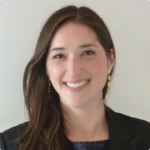
Helena Harnik
Synergist Programs Director

Eric Blanchet
Operations Director
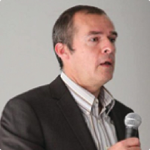
Jean-Christophe Capelle
Financial Director

Roxana Radu
Communications Manager

Gulwish Ahmed
Communications Assistant
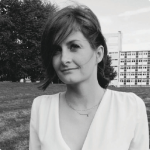
Lise Brooke
Growth Hacker
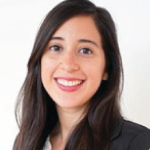
Daniela Luzuriaga
Project Coordinator
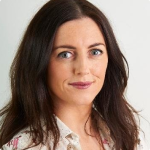
Danielle Barron
Chief Editor, Motherhood Projects